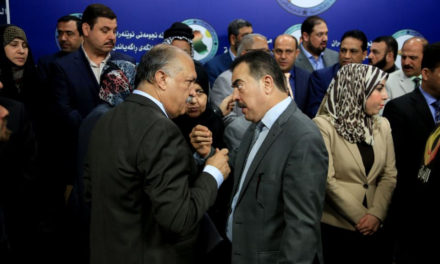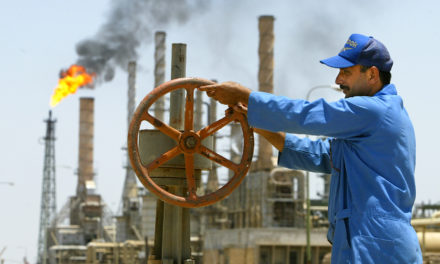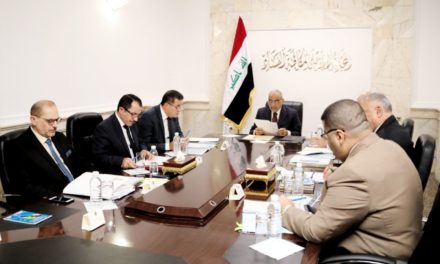With the dust still settling in Kirkuk, on 18 October, Iraqi forces- including elements of the Popular Mobilization Units (Hash’d al Shaabi)- took federal control of the Syrian border crossing at Rabia. Like in much of the disputed territories, federal forces bore minimal resistance. However, genuine pushback began on early 24 October when residual Peshmerga (Kurdish troops) in Ninevah clashed with federal forces moving north.
The incident foreshadowed several subsequent border calamities for the Kurdistan Regional Government (KRG).
The Kurdistan Region of Iraq (KRI) shares international borders with Syria, Turkey, and Iran.
At the tri-border zone of Syria, Turkey, and Iraq sits the strategic crossing of Faysh Khabur. Though, the KRI’s most active crossing is its single point of entry from Turkey, Ibrahim Khalil. Along the eastern border, the KRG oversees three major crossings with Iran at Haji Omaran, Parwiz Khan, and Bashmakh. The past two weeks have critically tested the KRG’s resolve for autonomy at all five zones.
Faysh Khabur
Following the early fire exchange between the Iraqi Security Forces (ISF) and Peshmerga forces on 24 October, the ISF continued to advance in regions of North-West Mosul and further toward the larger community of al-Shikhan. At this time, military officials in Baghdad formally told the Peshmerga to withdraw from the territory in Faysh Khabur within 24 hours.
Two days later, AFP reported of more intense exchanges of heavy artillery fire in the surrounding area near Zummar. The hostility was further escalated when the Kurdistan Region Security Council (KRSC) reported that the ISF and more troubling Hash’d units including the Badr Organization, Kata’ib Imam Ali, and Harakat al Nujaba continued moving on Peshmerga positions.
On 1 November, just as former President Masoud Barzani was stepping down, the Iraqi Joint Operations Command announced that Iraqi Chief of Staff General Othman al-Ghanimi and [acting] Peshmerga Minister Karim Sinjari could not find a tentative agreement. By 3 November, Baghdad called upon the Peshmerga to stand down in Faysh Khabur once again.
The Government of Iraq (GOI) in Baghdad is unambiguous about its intentions to secure the crossing at Faysh Khabur, yet no solution has come to pass yet.
Ibrahim Khalil
During these clashes, further north, another anxiety was fermenting for the KRG. On 31 October, an Iraqi military convoy was reportedly taking control of the Ibrahim Khalil [also referred to as the Habur Border Gate] border crossing with Turkey.
Confusion set in when Turkish Prime Minister Binali Yildirim told parliament, “[the] Habur border gate has been handed over to the central government as of this morning,” and an Iraqi border police captain Ali Abdul Ilah, told Reuters, “We have raised the Iraqi flag over the border crossing with Turkey today and it is officially under the full control of the Iraqi government.” The KRG disputed the information when the Ibrahim Khalil Border Gate Deputy Director Muhammad Tahir told Rudaw, “There is no Iraqi force on the border.”
In reality, the reported soldiers were part of an Iraqi-Turkish convoy returning from a military exercise in Silopi, Turkey. However, officials in Erbil were no less anxious given Turkey’s consent to the federal GOI on border issues. In Prime Minister Abadi’s weekly press conference last week, he asserted, “We are pressing ahead with imposing federal authority.”
Haji Omaran, Parwiz Khan, and Bashmakh
Iran further pressured the KRG from the east when they closed all three border crossings with the KRI. Following the ISF push into the disputed territories, On 15 October, the Iranian government closed the gates at Haji Omaran, Parwiz Khan, and Bashmakh.
It was not until 25 October, the Iranians reopened the Bashmakh crossing only after KRG officials offered to freeze the 25 September independence referendum results.
Both Haji Omaran and Parwiz Khan represent a significant point of remaining leverage for the Iranian government who have been working in coordination with their Iraqi and Turkish counterparts.
Implications
These recent events have prompted many to ask, does the Iraqi central government have the authority to seize control of such crossings?
In fact, the Iraqi Constitution gives the GOI broad authority with regard to border integrity. Section 4, Article 110 reads, “Formulating and executing national security policy, including establishing and managing armed forces to secure the protection and guarantee the security of Iraq’s borders and to defend Iraq.” Faysh Khabur, however, is different from the disputed territories such as Kirkuk in that Faysh Khabur is a part of Duhok, KRI-proper. It represents an unprecedented move into Kurdish territory.
Perhaps a more pressing question may be, why is Prime Minister Abadi using extraordinary measures to take Faysh Khabur, and why is it important to take federal control of points of entry (POE)?
First, Turkey all but publicly threatened Iraq to close the border crossing linking the KRI and Rojava (defacto Kurdish region of Syria). Turkish lawmakers continue to certify mandates to carry out military operations across the border in Iraq and Syria. Turkish Defense Minister Nurettin Canikli added, “It is impossible to avert those threats unless Turkey takes steps to remove those mistakes and threats actively on the field.”
Second, control of Faysh Khabur provides Baghdad massive leverage over the KRG. If Baghdad controls the crossing, the KRG’s main oil export pipeline (which feeds into the Kirkuk-Ceyhan pipeline) could essentially be turned off at the central government’s discretion. This would also ensure Iraqi-Turkey relations against potential strife.
Observers should expect to see further consolidation of federal authority. The Iraqi Defense Ministry has publicly stated it will manage all border posts, airports, and POE, and that the policy is, “going as planned in coordination with the relevant authorities and neighboring countries, and there is no delay in the procedures.”
Baghdad has clearly signaled it is not afraid to back up its plan with force, and the Kurds are quickly losing geopolitical friends. Therefore, Faysh Khabur is likely to be a crucial standoff.

Brandon Wallace
Brandon Wallace is an independent Middle East researcher and a graduate of Duquesne University.










